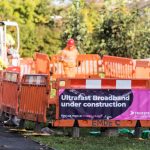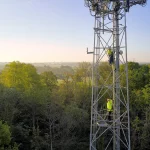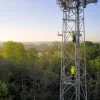Ofcom UK Calls on BT and TalkTalk to Improve Broadband Speed Information
The UK communications regulator, Ofcom, has today released the results from its latest mystery shopping research, which was designed to assess ISP compliance with the regulators Voluntary Code of Practice on Broadband Speeds. The study found that ISPs provided a speed estimate to consumers, without prompting, in 59% of all calls (rising to 93% after prompting, which is up from 85% in 2010).
Ofcom’s code requires member ISPs (listed here) to explain to new customers the access line speed that they are likely to achieve at home, and to try to resolve any problems when speeds fall significantly below the estimate. According to the code, if the problem cannot be resolved then customers will be able to leave their ISP without penalty (within the first 3 months of a contract).
Advertisement
The new study found that KC (76% of cases), Sky Broadband (72%) and PlusNet (67%) were the ISPs most likely to give callers an estimated speed without prompting, while TalkTalk (47%) and BT Retail (48%) were significantly less likely to provide a speed estimate without prompting from the caller.
For example, BT said that its agents usually only provided detailed speeds estimates once the customer has agreed to proceed with an order, yet Ofcom’s code requires that this information must be provided “as early as practicable within the sales process” (i.e. well before an order is agreed).

The results represent an improvement on the regulators first study in 2010 (here), especially with information provided through online sales channels (websites etc.), although clearly many broadband ISP still need to improve their communication skills for phone queries.
Claudio Pollack, Ofcom’s Consumer Group Director, said:
“It is vital that as the choice of broadband services expands, UK consumers get the best possible information when choosing a broadband provider. Our mystery shopping shows that, while consumer information about broadband speeds has improved in important areas, there is still more to be done.
We are working with internet providers to improve information that consumers receive when they sign up to a new service and will continue to monitor this area closely.”
As a result Ofcom has since had “discussions” with both BT and TalkTalk, both of which have agreed to address this issue by amending their staff training and sales processes. Ofcom has also taken action to further improve information for consumers by making clear to ISPs that they must provide details on speeds as early as possible in the call.
Advertisement
The regulator has also updated its consumer guides on choosing a broadband ISP and broadband speeds to help consumers ask the right questions before signing up to a new service or switching provider. The Speed Code itself was last updated in 2011 and Ofcom intends carry out a further review over the next year to ensure that it is “still appropriate for consumers’ needs“.
Ofcom will also conduct further mystery shopping research in 2012 to check whether improvements in compliance have been made.
Ofcom’s Broadband ISP Mystery Shopping Survey 2012
http://stakeholders.ofcom.org.uk/binaries/research/broadband-research/mystery-shopping-2012/mystery-shopping-overview.pdf
Mark is a professional technology writer, IT consultant and computer engineer from Dorset (England), he also founded ISPreview in 1999 and enjoys analysing the latest telecoms and broadband developments. Find me on X (Twitter), Mastodon, Facebook, BlueSky, Threads.net and Linkedin.
« ISP ICUK Launch Superfast 80Mbps FTTC and 100Mbps FTTP Broadband
















































Comments are closed